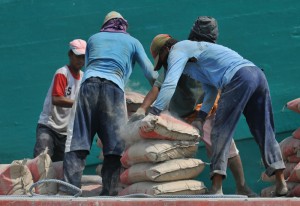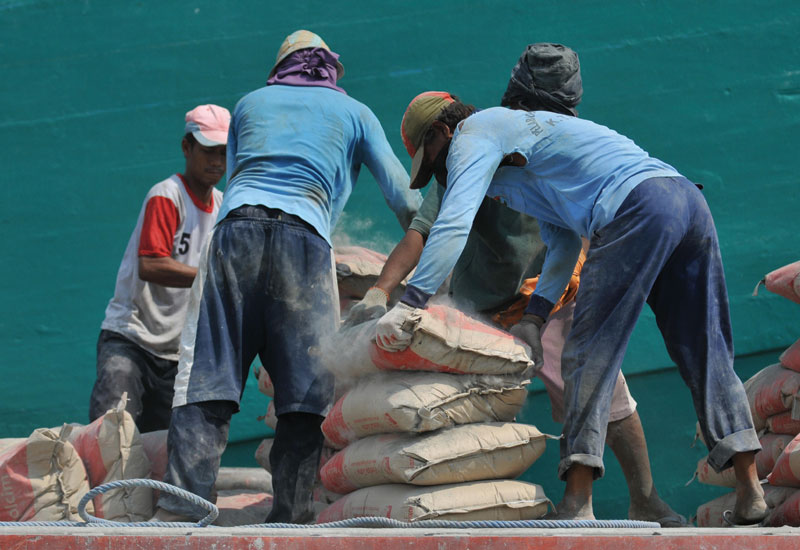
(AFP File Photo)
A lack of sufficient gas supply represents one of the greatest challenges to Suez Cement’s operations in the Egyptian market, the company’s general manager, Bruno Carré, said in a Wednesday telephone interview.
“We have offered solutions, entered into discussions with the authorities with the hope that through good dialogue and exchange of information, we might be able to look forward [to operating in the market],” Carré said.
The general manager added that a wind energy park in the area of Gulf El-Zeit will assist in supplying energy to the company, and is set to “cover a third of [the company’s power] consumption.”
The wind grid project, which is to transmit electricity to the plants run by Suez Cement, is an initiative that comes as part of the government’s objective to produce 7,000 MW, 20% of the country’s electricity needs, from renewable energy sources such as solar, water and wind energy by the year 2020.
Carré explained that the wind farms will only substitute for one of the processes used when making cement. “The electricity supplied by the grid will be used in the crushing part, while in cooking you need flame and heat so electricity is not appropriate,” he said.
The percentage of electricity used is unlikely to surpass the 1/3 consumption volume, Carré added.
“The grid is not a project that will guarantee the quantity of supply, but it guarantees that we are using renewable power and it is consistent with our sustainability strategy and helps with cost control,” he said.
The new environmentally friendly products that Suez Cement offers were developed in Europe, where they are already in use, Carré noted.
“Those products are sophisticated and they are expensive,” he said. “They are not meant for any kind of application but more for commercial buildings that could be used in this country.”
Carré mentioned that the focus in Egypt is mainly on affordable products that can help in local housing projects and that are efficient in terms of the manufacturing so that the company can minimise its energy consumption levels.
According to Carré, Suez Cement’s market share in the Egyptian market is around 16%, a 5% drop from last year, representing just under 50 million tons of cement.
“Since 2010, the market has been going up and down by 3%-5%, while it used to grow by 10%,” he said. “This is due to the financial crises and the political situation in the country.”
There are no plans for new production lines, the general manger noted, since the market is not growing. “We have capacity available but we don’t have the energy to run the capacity we have, so before we make any plans, we have to get the energy that is needed to supply cement to the market,” he said, adding that exports have for now been limited to neighboring countries.




